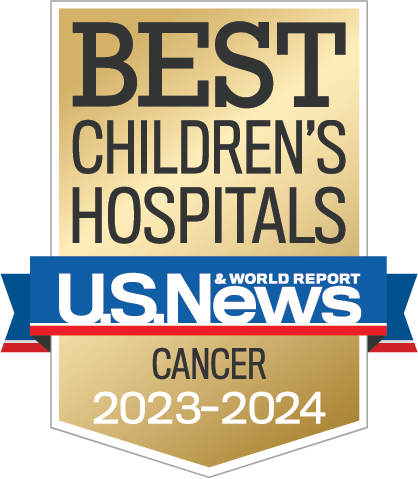-
- Overview
- Prepare for Your Visit
- Your Overnight Stay
- Send a Cheer Card
- Family and Patient Resources
- Patient Cost Estimate
- Insurance and Financial Resources
- Online Bill Pay
- Medical Records
- Policies and Procedures
- We Ask Because We Care
Click to find the locations nearest youFind locations by region
See all locations -
- Overview
- Addressing the Youth Mental Health Crisis
- Calendar of Events
- Child Health Advocacy
- Community Health
- Community Partners
- Corporate Relations
- Global Health
- Patient Advocacy
- Patient Stories
- Pediatric Affiliations
- Support Children’s Colorado
- Specialty Outreach Clinics
Your Support Matters
Upcoming Events
Child Life 101
Wednesday, June 12, 2024Join us to learn about the work of a child life specialist, including...
-
- Overview
- Pediatric Clinical Trials
- Q: Pediatric Health Advances
- Discoveries and Milestones
- Training and Internships
- Academic Affiliation
- Investigator Resources
- Funding Opportunities
- Center For Innovation
- Support Our Research
- Research Areas

It starts with a Q:
For the latest cutting-edge research, innovative collaborations and remarkable discoveries in child health, read stories from across all our areas of study in Q: Advances and Answers in Pediatric Health.
ParentSmart HealthlineTM
Caring pediatric nurses are available 24/7 to help answer your questions.
Send Postal Mail To:
Children’s Hospital Colorado
Anschutz Medical Campus
13123 East 16th Avenue
Aurora, CO 80045
Emergency and urgent care locations
In life-threatening emergencies, find the emergency room location nearest you. For non-life-threatening medical needs when your pediatrician is unavailable, visit one of our urgent care locations.
Urgent care locations (hours vary)
See all urgent care locationsNot sure if you need urgent or emergency care? Help me decide
All locations
See a listing of all our Children’s Hospital Colorado locations including inpatient, outpatient, therapy, surgery facilities and more.
Locations near you
See All LocationsMore Options
Blood and Marrow Transplant (BMT) Survival Rates in Children
Our top-ranked hematology, oncology, blood and marrow transplant and cellular therapy programs are national leaders in new and advanced treatments for pediatric cancers and blood diseases.

What is the definition of blood and marrow transplant survival rate?
Blood and marrow transplantation (BMT) is a procedure used to treat a variety of conditions, including:
- Cancers that do not respond to traditional chemotherapy
- Disorders of the immune system or blood cell production
The BMT survival rate measures the percentage of patients who receive a transplant and survive until 100 days or 1 year after BMT. The data is further broken down by the type of transplant:
- Autologous transplant: stem cells collected from the patient
- Allogeneic transplant: stem cells collected from a volunteer donor, such as a sibling, parent or an unrelated person
Why do we measure blood and marrow transplant survival rates?
At the Pediatric Blood and Marrow Transplant and Cellular Therapy Program at Children's Hospital Colorado, we measure BMT survival rates and many other measures to develop more effective therapies with fewer side effects and better patient outcomes.
These evaluations let us know where to put our efforts in improving transplant outcomes. This is all part of our work to provide the best care for babies, kids, adolescents and young adults having a BMT.
Our 100-day blood and marrow transplant survival rates
98.44%
100-day survival rate for autologous BMT from 2011 to 2021
95%
100-day survival rate for allogeneic BMT from 2011 to 2021
Children's Colorado blood and marrow transplant survival rates from 2011 to 2021
Below is a graph of the 100-day and one-year survival rates of 503 patients. These patients all received bone marrow transplants at Children’s Colorado over the last 10 years.
Our blood and marrow transplant survival rates from 2011-2021
Key
- Allogeneic (from another donor) n=331
- Autologous (from the patient) n=172
How do Children's Colorado’s success rates compare to other BMT centers?
To understand how our program's performance compares with other hospitals, we participate in the Center for International Blood and Marrow Transplant Research (CIBMTR) analysis of survival rates. CIBMTR compares our patients who have received transplants to similar patients who have had transplants elsewhere in the United States considering key patient variables such as age, disease and donor type.
The most recent CIBMTR analysis looked at transplants performed at Children’s Colorado between 2018 and 2020 using allogeneic (related or unrelated) donors. While CIBMTR compares our performance to international standards on a continual basis, this specific analysis was done only with centers in the United States.
CIBMTR 1-year BMT survival rates
The graph above shows that the survival rates for the Blood and Marrow Transplant and Cellular Therapy Program at Children's Colorado exceeded or meet the survival rates of similar patients transplanted at other pediatric centers in the United States.
Every year since 2010, CIBMTR has conducted an analysis of each participating center’s allogeneic transplant survival rate compared to international standards. Over the 12 years of these analyses, our program has always met or exceeded international standards.
How are we able to improve survival rates and other transplant outcomes?
We have improved BMT patient survival rates and other outcomes through our clinical approach, research studies and commitment to quality measures.
Our clinical approach
We believe provider expertise and continuity of care is critically important for patient outcomes. Our providers have specific training in BMT and cellular therapy. We also provide a variety of services to aid in the recovery after transplantation including physical therapy, child life and medical care from nurses and doctors from many different subspecialties.
To provide the best care and make this experience more personalized, we have implemented a “door-to-door” model. Through this model, we assign a nurse coordinator who has expertise in the child’s condition to each patient and family. This nurse coordinator is the patient and family’s main point of contact during the entire transplant process and partners with your doctor to provide the very best care throughout your transplant procedure.
Research
Our physicians are leaders in the Pediatric Transplantation and Cellular Therapy Consortium (PTCTC), the Center for International Blood and Marrow Transplant Research (CIBMTR) and the Children’s Oncology Group (COG). Our pediatric experts help design and participate in national and international clinical trials. These studies test new approaches to pediatric BMT and advanced cellular therapeutics, with the goal of improving outcomes.
Since 2018, our program has offered advanced cellular therapies. These cell therapies are designed to either combat cancer or treat infections that can occur in the child who had a transplant. Our program delivers a variety of chimeric antigen receptor T-cell (CAR) therapies, which has greatly improved outcomes for patients with leukemia that is resistant to all other therapies.
We have both commercial forms of CAR T-cell therapy for B-cell leukemia/lymphoma as well as multiple different trials for other targets of B-cell disease and acute myeloid leukemias. We have also started a program targeting solid tumors.
In addition to the above clinical trials, many of our team members also perform basic laboratory research to devise new transplant approaches, methods to treat complications and prevent relapse. Our investigators hold grants from the National Institute of Health (NIH), Department of Defense (DOD), Leukemia and Lymphoma Society, Hyundai Hope on Wheels, St. Baldrick’s Foundation, Alex’s Lemonade Stand Foundation, V Foundation and many other organizations.
Quality assurance
Since 2000, our program has had a comprehensive quality assurance (QA) program that looks at performance on an ongoing basis. The BMT Quality Assurance Program at Children’s Colorado operates in accordance with national guidelines established by the Foundation for Accreditation of Cellular Therapy (FACT). The BMT Program at Children’s Colorado has been FACT-accredited for transplant continuously since 2001, and in 2020, was also granted Immune Effector Cell accreditation.
We have always made patient safety at Children’s Colorado the highest priority by including all providers and caregivers in the BMT process. Our teams are committed to following the best care protocols available while working to advance treatments for the future.
Learn more about our Blood and Marrow Transplant and Cellular Therapeutics Program.


